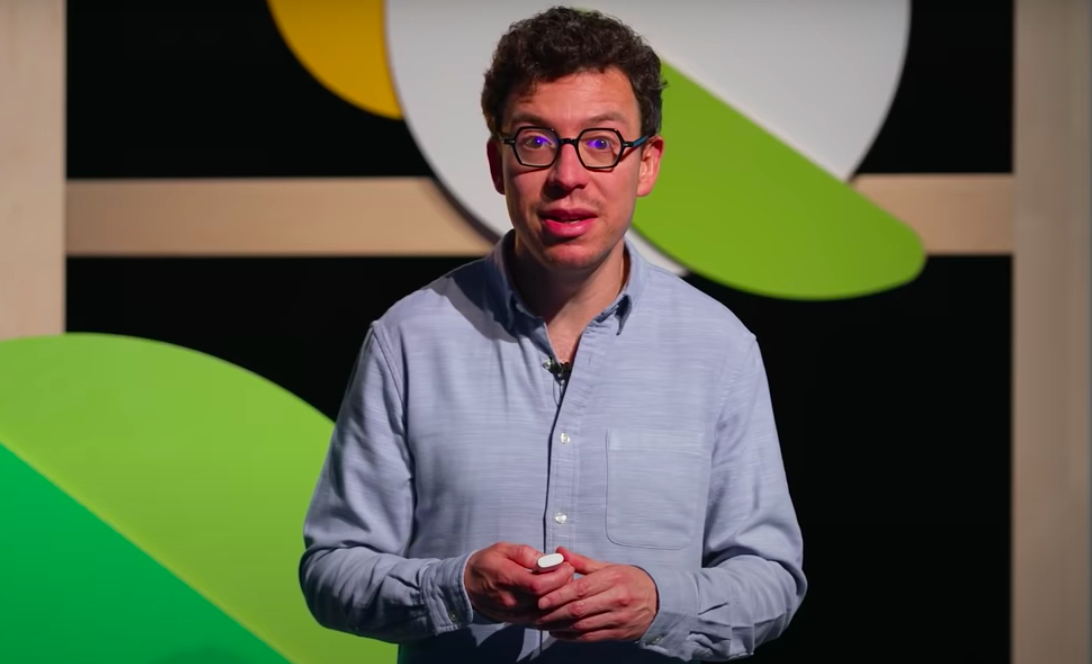Pittsburgh’s first unicorn has big plans for the future.
Last Friday, East Liberty-headquartered language learning company Duolingo hosted the third annual Duocon, a free, virtual, prerecorded conference providing updates on the company’s business strategy and product features, as well as more social events like this year’s baking class with Sohla El-Waylly.
Like past conferences, Duocon 2021 featured talks that shared a wide range of perspectives on the human connections language can provide, and the important of learning different ones because of that. But this year also shed light on how Duolingo is moving to expand its educational tech capabilities beyond languages, looking at the success of its artificial intelligence platform Birdbrain, and ahead to the impending launch of a new math app. Since the company’s IPO earlier this summer, CEO and cofounder Luis von Ahn has also stated that Duolingo, with a current 350-plus employee count, could look to branch out to even more learning subjects through acquisitions.
“The idea is that we’re trying to find subjects that improve people’s opportunities in life,” von Ahn said in his “State of Duolingo” talk.
The idea is that we're trying to find subjects that improve people's opportunities in life.
Updates to the company’s product features and future plans are significant largely because of Duolingo’s momentum throughout the pandemic, when people turned newfound time at home into a chance to learn a new language. Particularly with the shift to online learning for schools to maintain social distancing, Duolingo’s user experience and use of artificial intelligence have helped to push the barrier of what remote education can look like.
Birdbrain, a machine learning model introduced by the company in October 2020, has so far brought a new, individualized approach to the platform. Burr Settles, the research director at Duolingo, detailed how Birdbrain can help predict a user’s unique difficulty level at a moment in time, and create lessons that provide the optimal challenge and motivation for that person. A/B testing of this technology over the past several months showed that content length increased by 8.9% and time spent learning increased by 3.1% in skills practice, Settles said.
These advances come in addition to others powered by artificial intelligence on the app, like customized character voices, individualized lesson alert notes and the use of natural language processing for the company to audit content over time.
“Until everybody in the world has access to a really great teacher, we think AI is the best way to scale that kind of experience to as many people as possible,” Settles said.
Confirming previous reports about the company’s plans to move beyond language learning in education, von Ahn shared goals for the year ahead in his end-of-day “State of Duolingo” talk, laying out objectives to reach more users, increase the number of subscribers and improve the company’s language proficiency standard. von Ahn also mentioned recent product features that have helped to make language learning on the app even more immersive.
The new conversation feature, which allows users to have a live conversation with the Duolingo app, and the Hoots feature, which allows users to answer a writing prompt immediately graded with artificial intelligence, offers new capabilities that could easily transition to other educational subjects.
“The idea is that you can write really these relatively long paragraphs, especially for beginners, and then we can grade the whole thing without ever using a human,” von Ahn said of the Hoots feature.
Both new tools are a sign that Duolingo is looking for ways to make online education even more engaging as it continues to be the norm for many students during the pandemic. Along with these updates will be a revamp of the Duolingo for Schools tool, making it more accessible and easier to use.
“The hope is that teachers are going to have a much better time using Duolingo in schools than they did before,” said von Ahn. “And that’s something that we’re very excited about because we know how much Duolingo can help in schools, especially when schools are not fully in person.”
Finally, von Ahn shared previews of the elementary school-level math app in development, sharing that it will be similar to the current version of Duolingo in that the app will be a “gamified, fun way to learn math.” These expansion plans, he emphasized, directly align with the company’s mission, and will define the future of the company.
“As long as there are people in the world who can’t read or there are people in the world who don’t know basic math or there are people in the world who want to continue learning things,” he said, “we still have a lot of work to do.”







